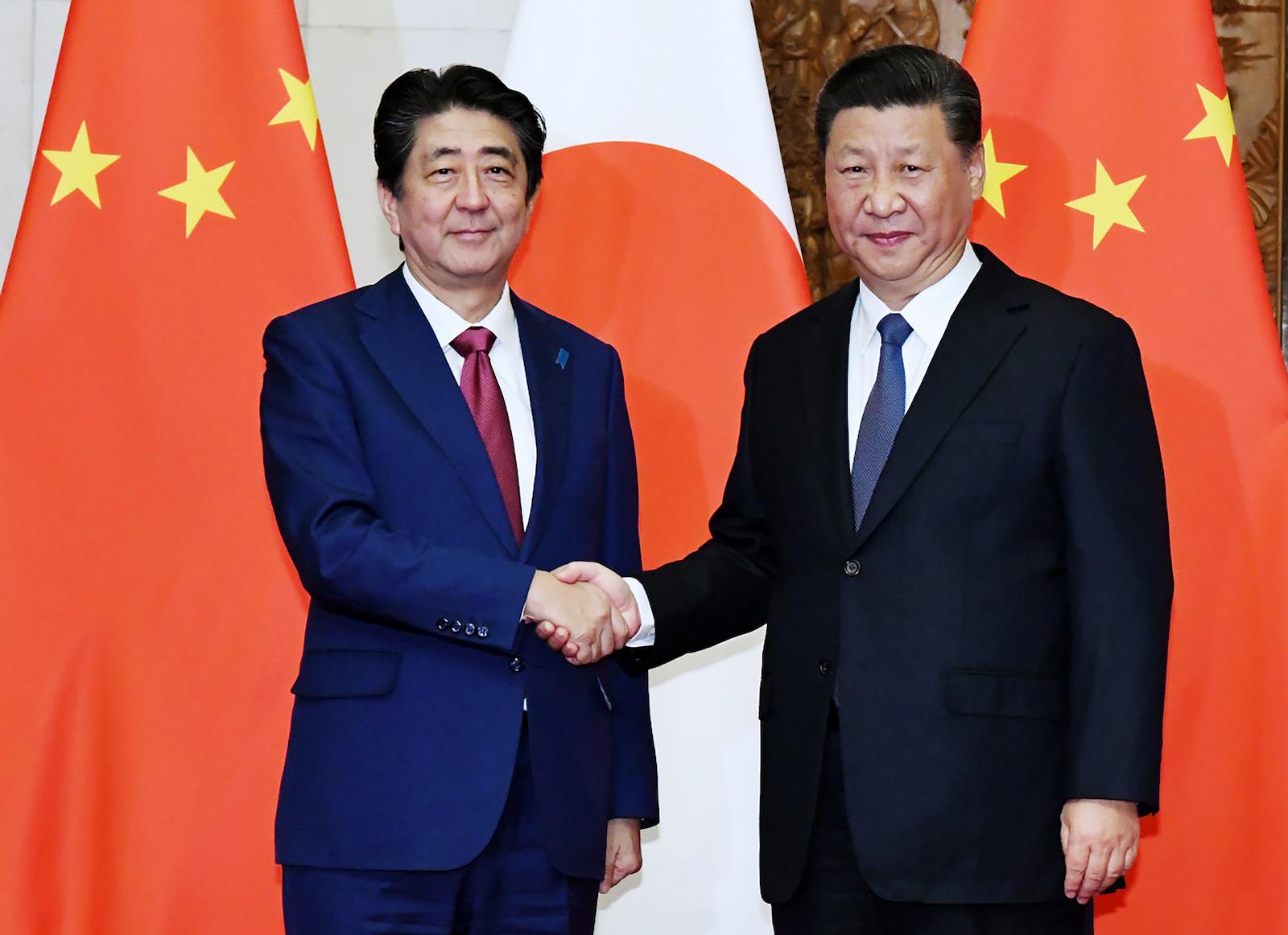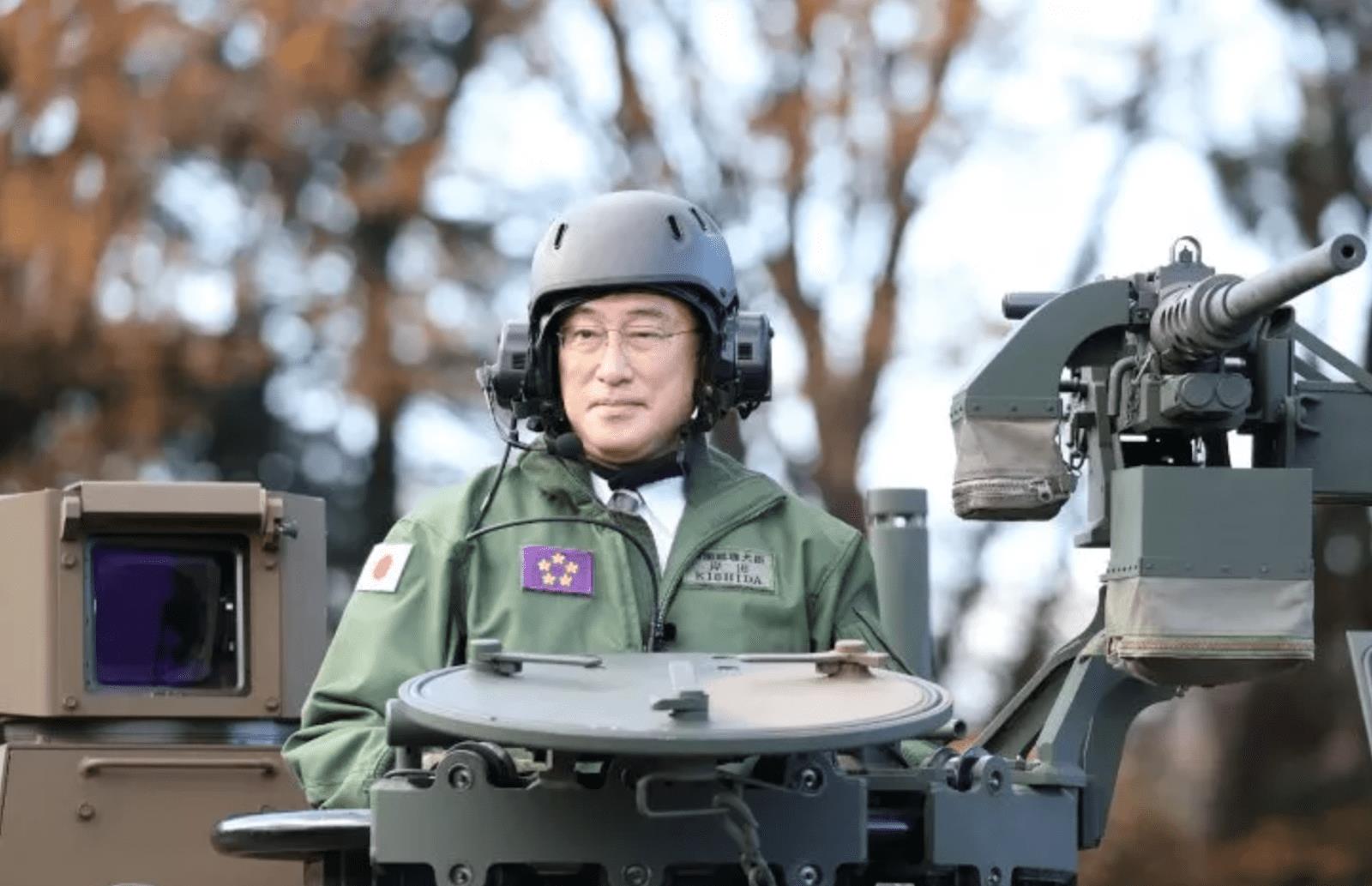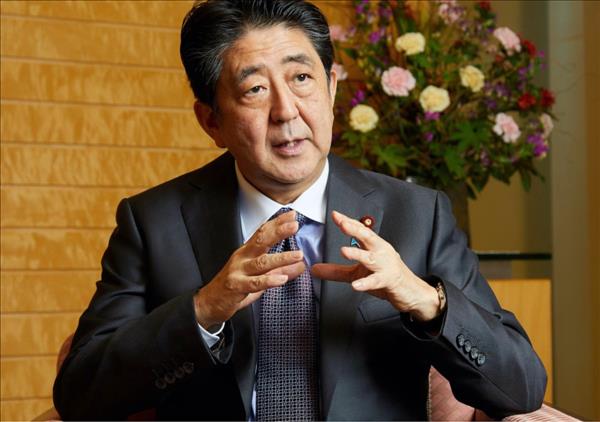
Abe's Legacy Will Endure In Shaping The Indo-Pacific
Former Japanese prime minister Abe Shinzo, through his formulation of a Free and Open Indo-Pacific (dubbed FOIP), articulated the need for a transparent, rules-based Indo-Pacific.
Priorities included development assistance, infrastructure and connectivity, institution-building, maritime security cooperation, and a commitment to rules as the final arbiter for international affairs rather than a Machiavellian, might-is-right approach to foreign policy.
On his visit in 2007 to the Parliament of India he articulated the so-called“Confluence of two seas” connecting the Pacific and Indian Oceans as a zone of economic intercourse, institution- and norm-building, and a concrete security agenda to ensure that critical sea lines of communication remain arbitrated by international law.
His passing will have regional consequences for different stakeholders and those who wish to shape his legacy. It will also have domestic consequences for how foreign policy is formulated. For countries with whom Abe had tense relations, those consequences may not be as expected.
Abe's influence at home
In Japan, Abe was the factional head of the Seiwakai , the largest faction within the Liberal Democratic Party (LDP) umbrella party. As faction head and former prime minister, Abe could shape discussions on domestic politics and security policy within the LDP and government.
Wielding this influence, he committed to revising Article 9 of the Constitution and articulated the importance of Taiwan in Japan's security . This has not yet succeeded, but talk of revision persists, especially given his party's dominant election performance following Abe's death.
Abe also committed to multi-layered and multinational cooperation not only to ameliorate Japan's security dilemmas but also to invest in the security of the broader Indo-Pacific, which has shaped incumbent Prime Minister Kishida Fumio's policies in the region.
Taking a granular look at Kishida's Shangri-La dialogue speech , the strong influence of Abe's FOIP vision in“Kishida's Vision for Peace” is obvious.
Abe's commitment to enlarging the quality and quantity of security partnerships and cooperation, and how this influenced the current government, are also evidenced in Japan's joining of the NATO summit in Madrid and the strengthening of its security through Reciprocal Access Agreements with Australia and the United K ingdom, as well as the realization of the Quad summit in Tokyo in May 2022.
Does Abe's unexpected death give Kishida more political maneuvering room for his own foreign policy—one more autonomous from Seiwakai—or will he have to adopt more of the late prime minister's positions?
It is too early to tell.
With Sino-Japanese relations deteriorating, Abe Shinzo's death was celebrated by some in China, including by netizens and club-goers . In the Japan-China context, however, Abe's death should be seen with concern. While bilateral relations were fraught with complexities and security concerns, Abe understood that Japan and China have a mutually beneficial economic relationship and that a zero-sum approach was neither feasible nor desirable.
It was Abe who resurrected Sino-Japanese relations from their 2012 low after the nationalization of the Senkaku Islands by the Democratic Party of Japan's Noda administration, using backdoor diplomacy and cooperation with astute Japanese diplomats and their Chinese counterparts.
These efforts led to Abe and Xi meeting in the fall of 2019 in Beijing and inking more than 50 third-country infrastructure and connectivity projects and numerous business deals. Both leaders also pushed for completion of the Regional Comprehensive Economic Partnership and the Japan-China maritime and aerial communication mechanism aimed at averting unintended clashes between the Japanese and Chinese militaries went into operation in June 2018.
If it weren't for the Covid-19 pandemic, Abe may have welcomed a state visit by Xi in early 2020 to sign a fifth political document. Today, Sino-Japanese relations are in a holding state. Japan is concerned about Beijing's position on Taiwan and whether it will seek reunification by force.

Japanese Prime Minister Shinzo Abe shakes hands with Chinese President Xi Jinping during their meeting in Beijing on October 26, 2018. Photo: pool via Jiji Press / AFP
Abe's explicit comments that a Taiwan contingency would be a direct threat to Japanese security and would require a united response sought to convey clarity to Beijing and Taipei that the status quo across the Taiwan Strait is Japan's preferred option.
From Japan's perspective, cross-strait instability is of concern because it would disrupt sea lines of communication and critical technologies produced by the Taiwanese Semiconductor Manufacturing Company. In this case, Abe's commitment to multilateralism manifested in his calls for Washington to drop its ambiguity on a Taiwan contingency.
Still, the loss of Abe's pragmatism, nuance, and political acumen in managing Sino-Japan relations will make bilateral relations more complicated as Abe was not only able to negotiate Tokyo-Beijing relations but was also an effective communicator to Washington about China and the Indo-Pacific.
Abe's passing will have ripple effects in the region at large, with Japan's neighbors and partners looking to build on the progress he started.
South Korea's President Yoon Suk Yeol looks determined to reset the bilateral ROK-Japan relationship and trilateral Japan-US-ROK relations to deal with the challenges of North Korea and China.
Paradoxically, Abe's death has opened the window for Yoon to engage further with Japan while at the same time removing the divisive (especially in South Korea ) Abe in the South Korean context to improve relations.
In Southeast Asia and India, Abe championed bilateral relations and the key role of both in the Indo-Pacific. With his absence, Southeast Asian countries will look for continuity in the Kishida administration—and beyond—including in their diplomatic engagement within the region, commitment to connectivity and infrastructure development, and in developing strong bilateral relations with individual ASEAN states.
India will look for continuity in bilateral cooperation on economic development, infrastructure, and connectivity, but also in deepening mini-lateral cooperation through enhanced cooperation within the Quadrilateral Security Dialogue and other emerging mini-lateral organizations such as Indo-Pacific Economic Framework.
Finally, the United States views the passing of Abe with concern as he was able to marshal the political forces in Japan to take a more proactive position in securing its own security but also providing security within the US-Japan alliance and for partners.
The 2016 Legislation for Peace and Security and the 2013 Specially Designated Secrets Protection Law , were both meant to strengthen cooperation with the United States and like-minded countries, to enable Japan to be a more proactive partner in providing security within the region.

Japanese Prime Minister Fumio Kishida rides on a Japan Ground Self-Defense Force Type 10 tank during a review at JGSDF Camp Asaka in Tokyo on November 27, 2021. Photo: JiJi
Abe's leadership was central in these legislative achievements.
Fortunately for the United States and Tokyo's other partners, Abe's FOIP vision, its commitment to a robust and ever strengthening Japan-US alliance, and to multilayered and multinational security, economic, and diplomatic cooperation to deal with the greatest regional geopolitical challenge—coexistence with China—has been internationalized and institutionalized. This should ensure that regional Indo-Pacific dynamics remain institutionally driven based on shared interests among like-minded countries.
Indo-Pacific stakeholders can contribute to the region's institutional development by crafting rules-based frameworks that embody the principles laid out in Abe's FOIP vision including development assistance, infrastructure and connectivity, institution-building and maritime security cooperation. Finding a role for China as Abe did will be critical to achieving these goals.
Concrete initiatives that would further these objectives include expanding the Comprehensive and Progressive Trans-Pacific Partnership and Indo-Pacific Economic Framework, more investment in the Partners in the Blue Pacific and similar initiatives in Southeast and South Asia and enhancing public good provision by minilaterals such as the Quad or a Quad-plus formulation to mitigate non-traditional security challenges such as climate change, piracy, illegal fishing and transnational diseases.
Dr. Stephen Nagy ( ) is a senior associate professor at the International Christian University in Tokyo, a senior fellow with the MacDonald Laurier Institute (MLI), a fellow at the Canadian Global Affairs Institute (CGAI) and a visiting fellow with the Japan Institute for International Affairs (JIIA). Twitter handle: @nagystephen1.
This article was originally carried on Pacific Forum and is republished with permission. Read the original here .

Legal Disclaimer:
MENAFN provides the
information “as is” without warranty of any kind. We do not accept
any responsibility or liability for the accuracy, content, images,
videos, licenses, completeness, legality, or reliability of the information
contained in this article. If you have any complaints or copyright
issues related to this article, kindly contact the provider above.


















Comments
No comment